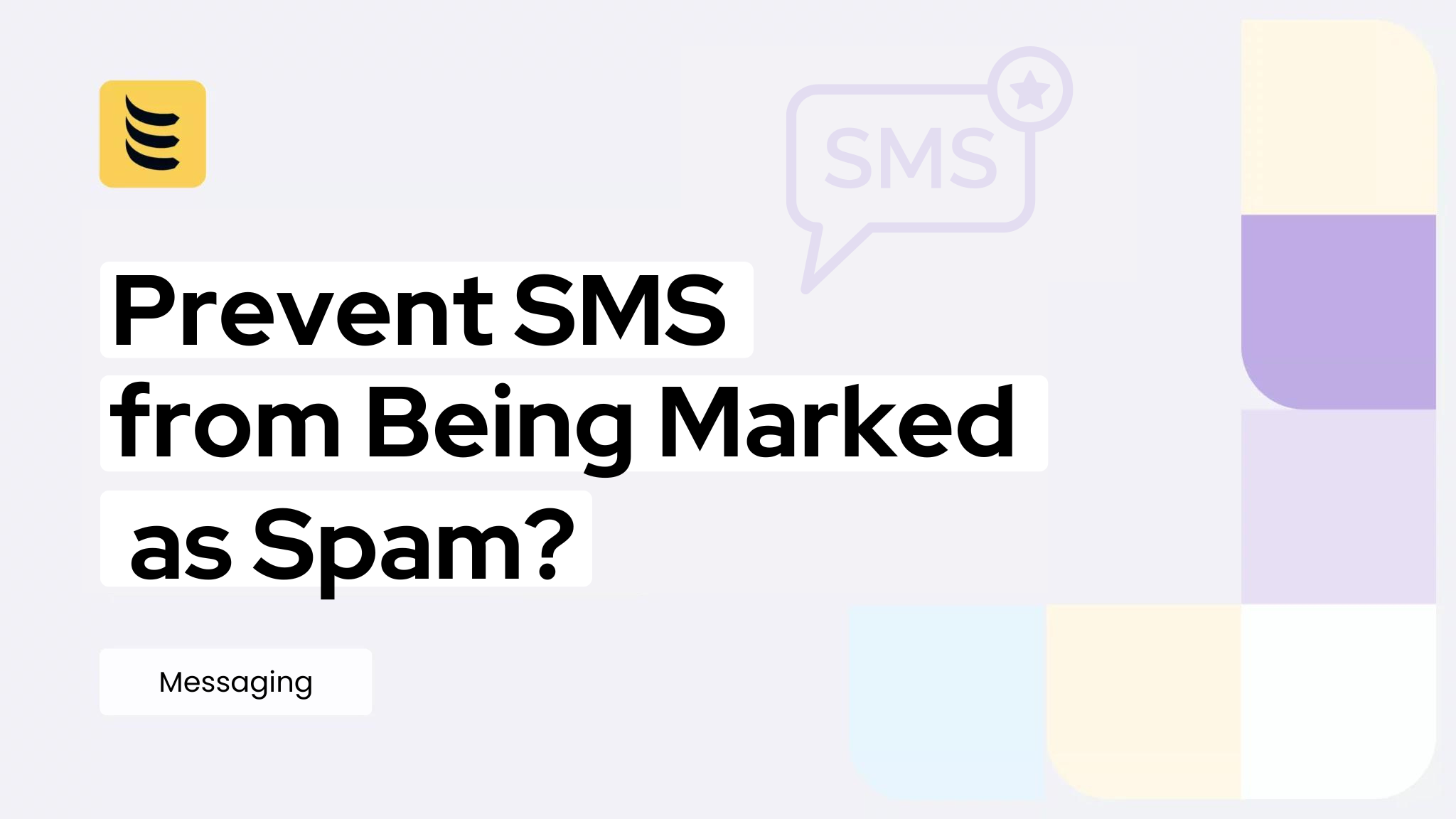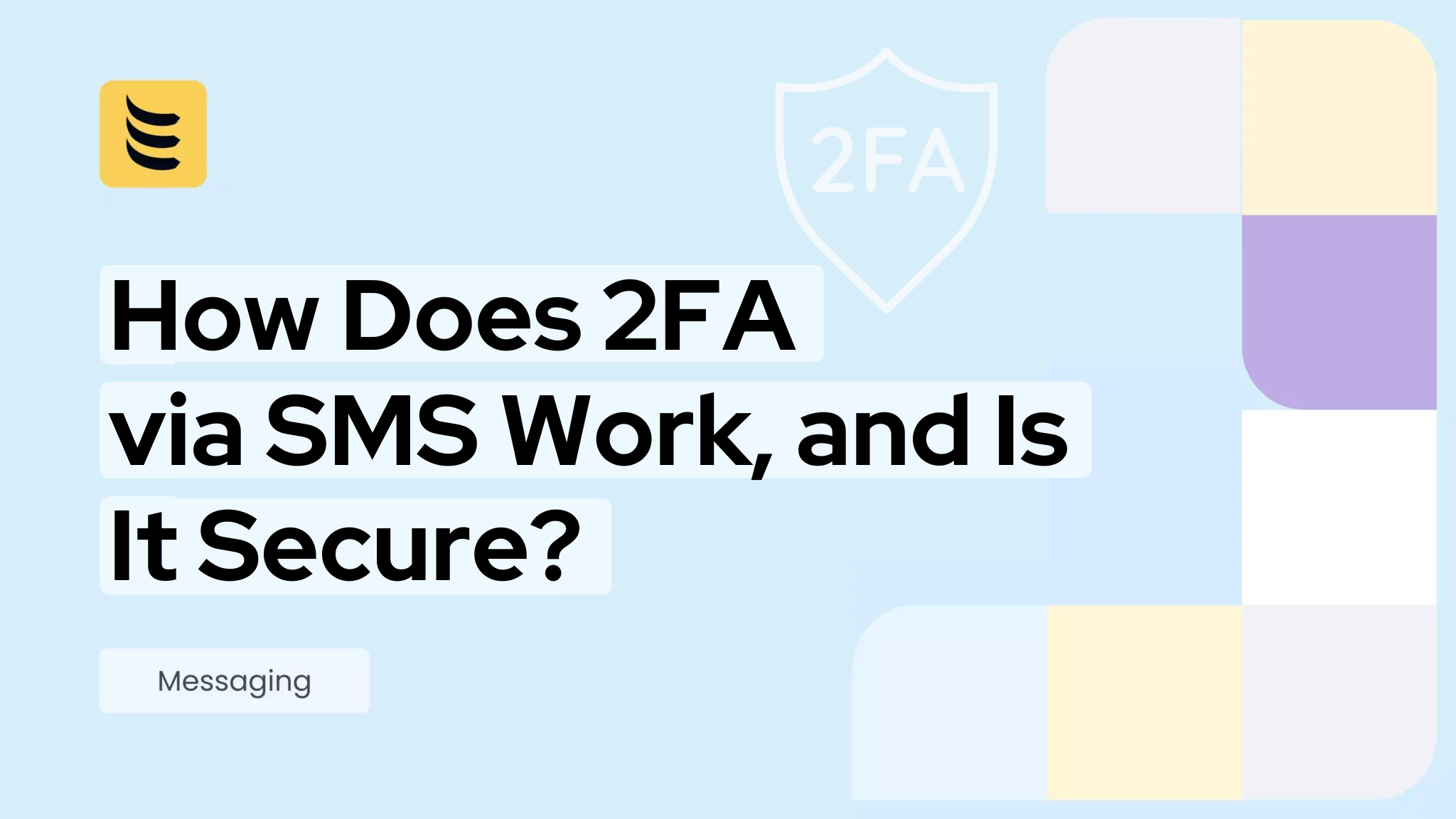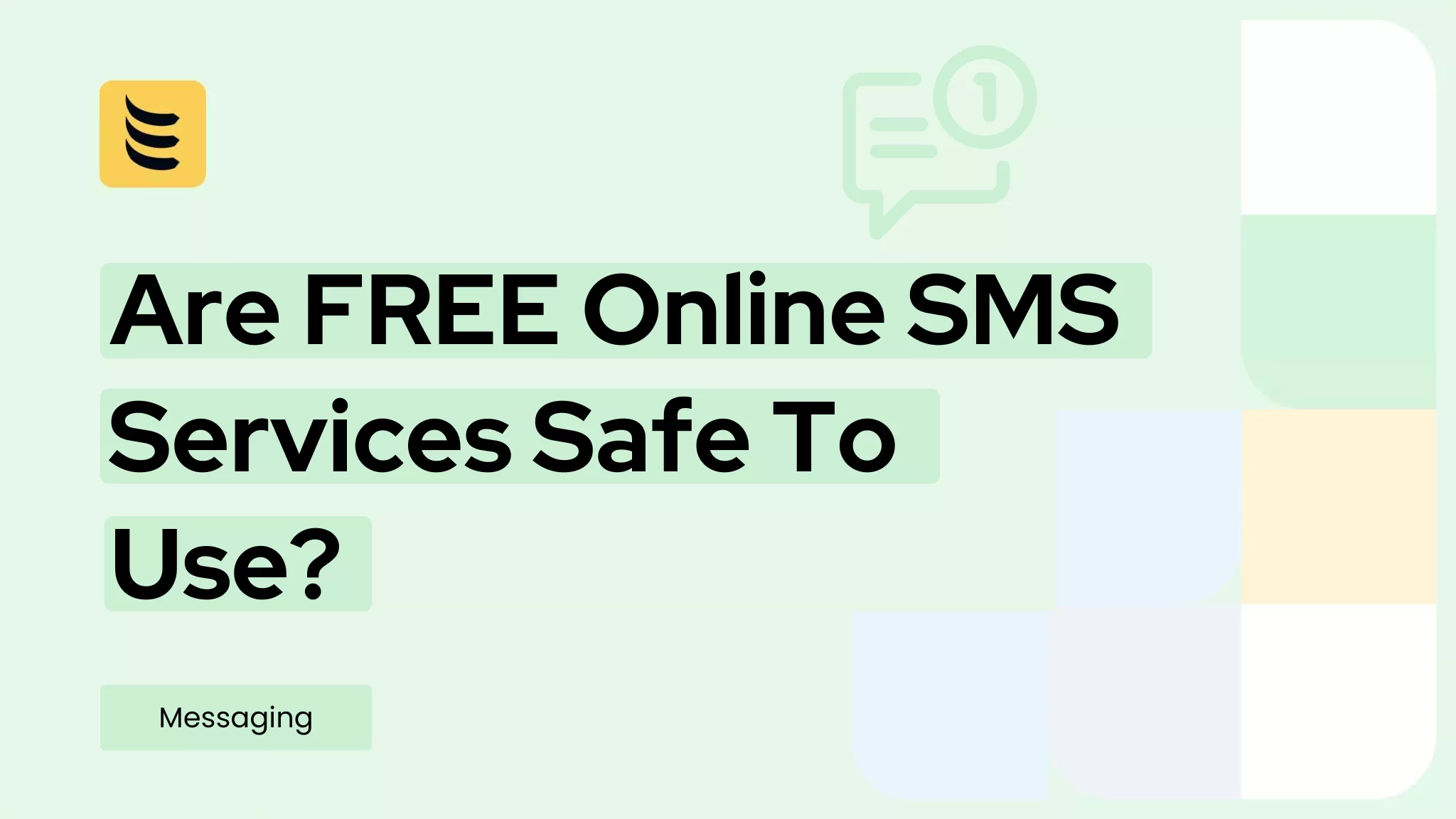Introduction
Consumers in the digital economy frequently rely on handheld personal devices like smartphones or tablets to get information about the products and services they require – and for completing transactions that relate to these commodities. Businesses therefore need to consider having a proactive presence in the mobile communications arena.
This is particularly true when it comes to SMS text messaging. It’s estimated that around 98% of all text messages are opened by the receiver – generally, within about three minutes of receipt. This means that in business, SMS messaging is definitely a communications channel worth pursuing.
As enterprises may have hundreds, thousands, or even millions of consumers, regularly communicating with this customer base through text messaging requires enabling technologies that simplify the process. One of these is the SMS gateway.
What Is an SMS Gateway?
An SMS Gateway is a service that enables businesses and applications to send and receive SMS messages across mobile networks worldwide. It acts as a bridge between software systems—such as CRMs, marketing platforms, and customer support tools—and telecom carriers, allowing automated and large-scale messaging. Businesses can submit messages to the gateway through APIs, web interfaces, or email-to-SMS services, after which the gateway processes and routes them to the recipient’s mobile carrier. Upon delivery, the sender may receive status updates confirming whether the message was successfully delivered.
SMS Gateways can function through different protocols, including SMPP for high-volume messaging, HTTP APIs for web and app-based integration, and even VoIP-based solutions for businesses using SIP services. Common use cases include sending promotional campaigns, transactional alerts like OTPs and payment confirmations, automated customer support responses, and two-way messaging for real-time engagement. By streamlining SMS communication, these gateways help businesses enhance customer engagement, improve operational efficiency, and ensure timely message delivery.
Since in most cases messages sent from software applications aren’t compatible with SMS text format, it’s necessary to alter this information before it reaches the recipient’s mobile device. An SMS gateway translates software application messages into a format that mobile devices can recognize. It then makes the data compatible for delivery over the network so that it can successfully reach the recipient.
The first SMS gateway implementations were actually physical devices that had SIM cards and embedded radios. Users had to individually connect each SMS gateway device to a mobile phone network in order to send text messages.
Modern SMS gateways are software or cloud-based installations that use digital communication protocols to route SMS text messages to the telecommunications networks.
How a Modern SMS Gateway Works
Modern SMS gateways typically route SMS messages to the short message service centers (SMSCs) of mobile networks. An SMS gateway can do this via a short message peer-to-peer or SMPP interface that the mobile networks expose, either directly or using an aggregator that sells messages to multiple networks. SMPP is a communications protocol for exchanging SMS messages between SMSCs and/or external short messaging entities (ESMEs).
Using an SMS Gateway to Provide Text Service for Business Purposes
Business computer systems can interact with SMS gateways in a number of ways.
Using a Web Utility or SMS as a Service Platform
With an SMS as a Service offering or dedicated web page utility, business customers can upload their messages and list of phone numbers, and have the website or service handle the scheduling and distribution of their business SMS output automatically.
Using an SMS API
Software developers can use an SMS API (short message service application programming interface), which is a set of protocols and tools that enables software applications to send and receive text messages (SMS) programmatically. With an SMS API, developers can integrate SMS functionality into their own applications, websites, or systems, facilitating the automation of SMS communication. Once set up, an SMS API can run in the background 24/7, ready to perform the tasks for which it was programmed.
Typically, an SMS API will receive a text message and subject it to various authentication procedures. Once approved, the message may be sent through a series of checks for spam or phishing data, then routed to the relevant telecom operators. Here, the message is sent to a specific connection, so that it can be delivered to its intended recipient.
SMS APIs make it easier for developers to integrate multiple systems with each other. For example, business organizations may require SMS integration with their customer relationship management (CRM), sales, or marketing systems to help enhance the customer experience, or with their enterprise resource planning (ERP) and procurement systems, for better supply chain and vendor management.
Businesses in all sectors can benefit from communicating via SMS and implementing an SMS API or SMS as a Service solution – as long as they choose the correct service provider.
What to Look for in an SMS Gateway Provider
If you consider an SMS gateway as the portal that connects you to the smartphones and personal devices of your customers and contacts, you’ll appreciate why choosing the right provider is critical to the success of your SMS mobile marketing strategies. However, not all SMS gateway providers were created equal – and there are many of them out there.
Here are some recommendations for making the right choice:
Choose an SMS Gateway Provider with Global Reach
If you’re looking to reach out to a worldwide customer base or have a network of international operations, you’ll want to choose an SMS gateway provider that can connect with as many mobile networks around the world as possible. For example, with IDT Express SMS APIs, you can send messages to over 70 countries globally using our local DID numbers. You can also receive messages in 14 different countries on your SMS-enabled phone numbers.
Choose an SMS Gateway Provider with the Most Versatile SMS API
Generally, your best option is to choose an SMS gateway platform that offers a REST API – which is a class of application programming interface that’s widely used (therefore offering greater compatibility) and widely recognized in the telecommunications industry. An SMS API with REST capability will typically provide quicker communication, better performance, greater security protection, and scalability.
Choose an SMS Gateway Platform that’s Easy to Use
You won’t want to waste valuable time and energy navigating a steep learning curve for your business SMS solution. Look for an SMS gateway provider that offers ease of use and easy integration with your business systems. IDT Express SMS API, for example, offers a user-friendly wizard-driven code generation process that’s fast and effortless to utilize. With our SMS API, you can seamlessly build customer journeys by fostering interactive conversations, all within the framework of your app – and swiftly integrate IDT’s Platform into your current systems or applications.
Look for a High SMS Throughput
SMS throughput is a measure of how many text messages you can send per second. For timely business SMS communications, the higher this figure is, the better. You should therefore consider the volume of messages that you hope to deliver (and how quickly you want them sent), and check that your SMS gateway provider can meet these expectations.
Make Sure the SMS Gateway Provider Understands Your Legal Environment
Violating the laws that govern the sending of SMS messages in your areas of operation can have serious legal and financial consequences. In the US, for example, the sending of spam, phishing SMS, and other unauthorized communications can result in fines that range from $500 to $1,500 per unauthorized text. Offenders also expose themselves to the possibility of civil suits from SMS recipients.
In some countries, the law does not hold the SMS gateway service provider responsible for the sending of unwanted texts. The result of this is that some SMS gateway providers may allow subscribers to do whatever they want with no oversight – or have little knowledge of the relevant laws in particular locations.
To ensure that you’re covered legally, it’s important to know where the SMS gateway provider operates from, and what their approach is to full compliance with the relevant local laws.
Choose an SMS Gateway Provider with Great Customer Support
Even with the highest levels of automation, you may encounter issues with your SMS gateway deployment, or have questions about your SMS as a Service offering. In such cases, you’ll need excellent customer support.
However, customer support levels vary between SMS gateway providers. Some services only offer online help through an SMS chatbot or knowledge base. Others provide dedicated human support via phone or video calls.
Depending on the way you like to work, it’s important to choose an SMS gateway provider with the appropriate level of customer support.
Checklist to choose the right SMS Gateway provider:
| Criteria | Provider 1 | Provider 2 | Provider 3 | Provider 4 | Notes |
|---|---|---|---|---|---|
| Reliability & Delivery Rates | [ ] Yes [ ] No | [ ] Yes [ ] No | [ ] Yes [ ] No | [ ] Yes [ ] No | High delivery rate is essential. |
| Global Reach & Carrier Connectivity | [ ] Yes [ ] No | [ ] Yes [ ] No | [ ] Yes [ ] No | [ ] Yes [ ] No | Covers all your target markets. |
| API & Integration Options | [ ] Yes [ ] No | [ ] Yes [ ] No | [ ] Yes [ ] No | [ ] Yes [ ] No | Easy integration with your systems. |
| Security & Compliance | [ ] Yes [ ] No | [ ] Yes [ ] No | [ ] Yes [ ] No | [ ] Yes [ ] No | GDPR, HIPAA, TCPA compliant. |
| Pricing & Transparency | [ ] Yes [ ] No | [ ] Yes [ ] No | [ ] Yes [ ] No | [ ] Yes [ ] No | Clear pricing, no hidden fees. |
| Support & Customer Service | [ ] Yes [ ] No | [ ] Yes [ ] No | [ ] Yes [ ] No | [ ] Yes [ ] No | 24/7 support, quick response. |
| Features & Flexibility | [ ] Yes [ ] No | [ ] Yes [ ] No | [ ] Yes [ ] No | [ ] Yes [ ] No | Advanced features like 2-way SMS. |
| Scalability & Performance | [ ] Yes [ ] No | [ ] Yes [ ] No | [ ] Yes [ ] No | [ ] Yes [ ] No | Handles growth without delays. |
| Reputation & Reviews | [ ] Yes [ ] No | [ ] Yes [ ] No | [ ] Yes [ ] No | [ ] Yes [ ] No | Positive feedback from other businesses. |
| Additional Value-Added Services | [ ] Yes [ ] No | [ ] Yes [ ] No | [ ] Yes [ ] No | [ ] Yes [ ] No | SMS marketing, analytics, number validation, etc. |
SMS Gateway Pricing Structure
SMS gateways are typically charged in a few different ways, depending on the provider and the pricing model they offer. Here are the most common methods of charging:
1. Pay-as-You-Go (Per Message)
- How it works: You are charged based on the number of messages you send or receive. Each SMS is billed individually.
- Typical Charges: You pay a set price per SMS (e.g., $0.01 to $0.05 per SMS).
- Best for: Businesses with irregular or low-volume messaging needs, or those running short-term campaigns.
- Pros: Flexibility, no upfront costs, you only pay for what you use.
- Cons: Can get expensive with high message volume.
2. Monthly Subscription (Bundled Plans)
- How it works: You pay a fixed monthly fee that includes a certain number of SMS credits. Additional messages beyond your plan are typically billed at a discounted rate.
- Typical Charges: A set monthly fee (e.g., $50/month for 5,000 SMS) and then a discounted rate for extra messages (e.g., $0.03 per additional SMS).
- Best for: Businesses that send a consistent amount of SMS messages each month.
- Pros: Predictable pricing, bulk discounts, usually includes additional features like analytics and customer support.
- Cons: Paying for unused messages in the plan if volume is low.
3. Tiered Pricing
- How it works: Pricing varies based on the volume of messages you send. The more you send, the cheaper each SMS becomes.
- Typical Charges: Lower rates for larger volumes (e.g., $0.10 per SMS for 1,000 messages, $0.07 for 10,000, etc.).
- Best for: Businesses with scalable messaging needs who expect to send increasing volumes.
- Pros: Discounts for higher volumes, cost-effective as you scale.
- Cons: Requires commitment to higher volumes.
4. Credit-Based System
- How it works: You purchase credits in bulk, and each credit is used to send one message.
- Typical Charges: Prepaid credit system where you buy credits upfront (e.g., $100 for 10,000 credits/SMS).
- Best for: Businesses with flexible needs, where prepaid payments work better than monthly plans.
- Pros: No recurring payments, can buy credits as needed, often discounts on bulk purchases.
- Cons: Prepaid, so you need to keep track of credits.
5. Dedicated Short Code or Long Code Leasing
- How it works: You lease a dedicated short code or long code for a fixed fee, often with a volume-based charge for the messages sent.
- Typical Charges: Lease fees for short codes (e.g., $500 to $1,500 per month), plus message sending costs.
- Best for: Businesses that need a dedicated number for SMS marketing, two-way messaging, or transactional alerts.
- Pros: Custom branding, exclusive number, high deliverability.
- Cons: High initial cost, ongoing lease fees, and setup time.
6. Monthly Access Fee + Pay-per-Message
- How it works: You pay a monthly fee for access to the gateway, plus a per-message fee for the SMS sent.
- Typical Charges: A base fee for using the service (e.g., $20/month) plus a per-message rate (e.g., $0.01 per SMS).
- Best for: Businesses that need reliable access to an SMS gateway but want to pay based on usage.
- Pros: Stable monthly fee with a low-cost-per-message model.
- Cons: Can add up depending on the message volume.
7. Two-Way Messaging Charges
- How it works: When receiving messages (e.g., customer replies), there may be additional charges, often higher than sending messages.
- Typical Charges: Charged separately for receiving messages (e.g., $0.02 per inbound message).
- Best for: Businesses that require customer interaction via SMS (e.g., for support or marketing).
- Pros: Adds interactivity to SMS campaigns.
- Cons: Extra cost for received messages.
Additional Considerations:
- International SMS Rates: Charges vary depending on the country the message is being sent to, with international messages often costing more.
- Premium Services (e.g., MMS, rich media): Sending multimedia messages (MMS) or using advanced features like two-way SMS can come at an additional cost.
- API Charges: Some gateways charge for API usage or offer tiered API pricing based on volume or frequency of calls.
IDT Express’s SMS APIs offer comprehensive documentation to facilitate quick deployment and 24/7 support for you and your team. With IDT’s reliable and scalable Notifications API, you can create highly personalized SMS notifications that cater to any use case with unmatched flexibility.
To find out more about how the IDT Express SMS API can provide a secure, user-friendly, and reliable SMS gateway for your business, book a demo.




